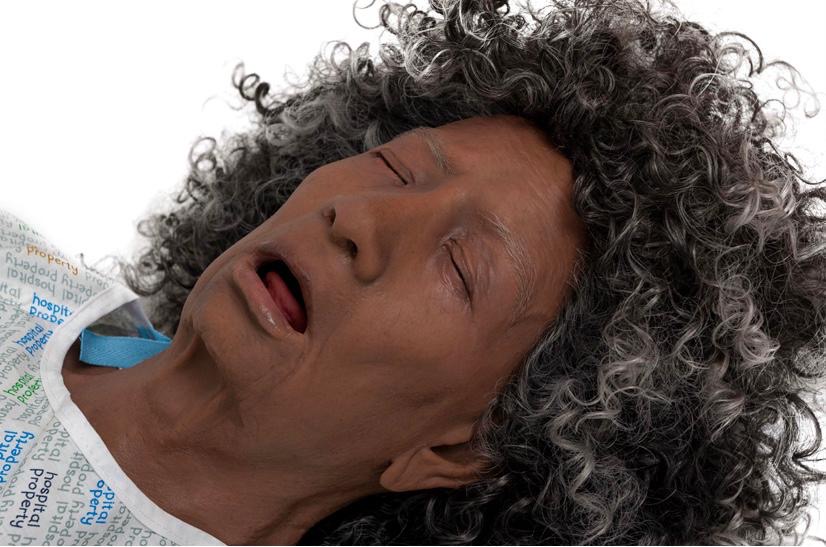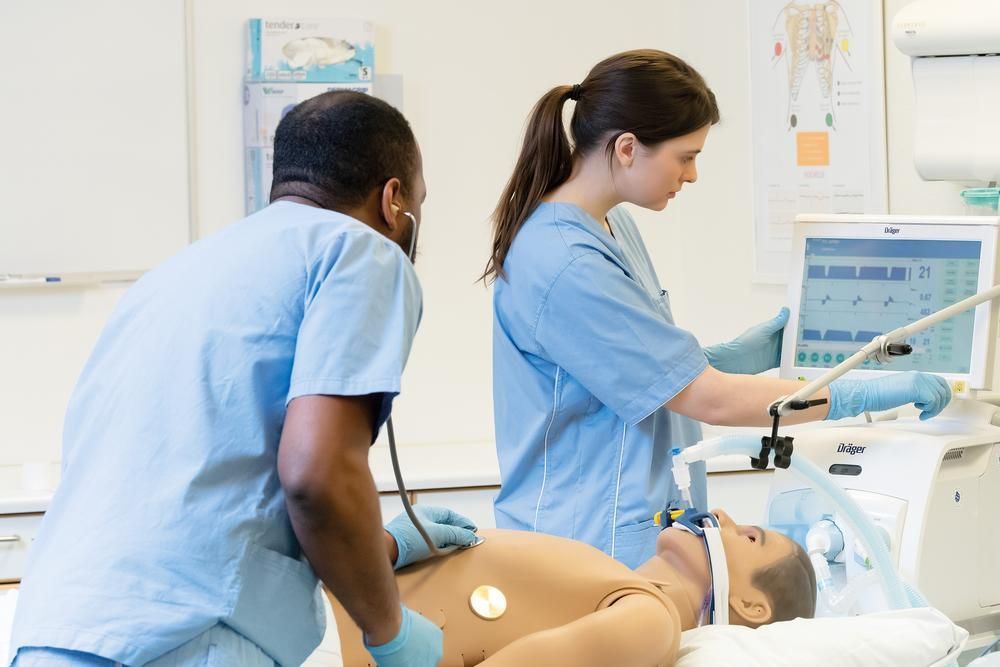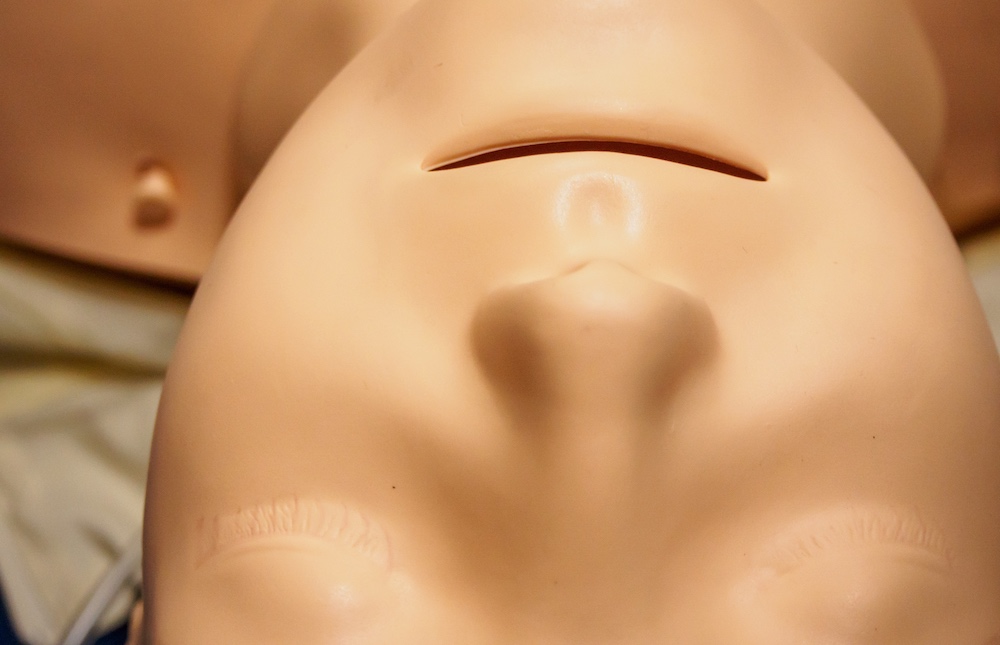Echo Healthcare‘s CEO and former critical care paramedic Kevin King submitted this article to HealthySimulation.com exploring the importance of realistic patient presentations across all ethnicities, genders, and ages within the field of healthcare simulation manufacturing, which in the past was clearly limited. Kevin shares about the important research which supports the important of educating tomorrow’s healthcare providers with a specific lens on these demographics so as to best prepare learners for their real world experiences. We must always consider the ways our simulation programs can invest in patient simulators which best represent the full diversity of the world’s population. Kevin writes…
Central to the ethos of both Echo Healthcare and Lifecast Body Simulation is the important of realism in healthcare simulation. For our companies the desire has always been to create tools reflective and representative of the global population healthcare providers and educators serve and care for. For years, human patient simulators created and used within simulation labs and clinical education facilities around the world have been homogenous, and have struggled to match the true dynamic demographic of the population served.
Because patients obviously differ in terms of ethnicity, gender, age and physical attributes, training on simulated patients that are not reflective of these attributes can lead to negative learning transfer. According to Speicher & Kehrhan, “Poor transfer skills were linked to using traditional instructional strategies for training; and the Knowledge, Skills, and Abilities (KSA) did not transfer resulting in poor problem solving abilities.” Further research reveals a wide disparity in mortality rates based on race, age, and gender, for example, with researching suggesting that ”black women are 2 to 6 times more likely to die from complications of pregnancy than white women, depending on where they live.”
The disparities also extend to gender, where research reveals women are less likely to receive CPR in out-of -hospital public cardiac arrests. Evidence gathered through surveys suggested that females were less likely to receive CPR as a result of public perception of “inappropriate touching” and the fear of causing injury. Scientific research utilizing patient simulators backs up this belief, according to Kramer et al: “While rescuers had better hand placement for CPR on the female, both men and women rescuers were reluctant to remove the female’s clothing, with men significantly more hesitant.” Resistance to remove clothing was often articulated relative to social norms during structured interviews.
But at Echo Healthcare we strongly believe that by only using male simulators, educators prevent trainees to fully experience social differences associated with the care of a female simulated patient. The bottom line is that realistic female patient simulators are a critical part of any EMS simulation program. The evidence cited here clearly suggests that there is a very real need for diverse and physically appropriate simulators across genders, ages, ethnicities and body types.
The goal of Echo Healthcare and Lifecast Body Simulation is to address these disparities through the development and design of manikins that reflect the wide range of patient presentations providers will see throughout the course of their careers. By designing manikins that represent racial diversity, age diversity and realistic gender diversity, students will be exposed to a wide range of such simulated patients, better preparing them for the world in which they are about to practice.
All of the manikin models produced by Echo Healthcare and Lifecast Body Simulation are based on REAL scans of human beings of multiple ethnicities and ages, and great pains are taken to ensure millimeter accuracy in terms of physical design, weight, and movement. We firmly believe that whatever clinical training you can do with our simulators will prepare you to do with real patients.
Dave Halliwell, Director of Lifecast Body Simulation suggests we “look at the color of your skin and you will realize that it’s not all one color. As such, our artists work at Madame Tussaud’s and in professional movie production special effects where the realism of representation of human form needs to be perfect. It is not acceptable to us to simply change the skin color to a single tone. We want our manikins to represent people — real people — with medical conditions, with history, with personality. Making human simulators that students engage with has been a key part of our journey, and we want to have the emotional engagement to create feelings where that is possible.
Kevin and and Dave believe their work has been made even more important since COVID-19 has reduced the opportunities for interacting directly with Standardized Patients and other learners, forcing educational programs worldwide have had to adjust for reduced or eliminated clinical hours.
Learn More About Their Realistic Patient Manikins Here!
References
- Speicher, Timothy & Kehrhahn, Marijke. (2009). Analogical Reasoning: A Process for Fostering Learning Transfer from the Classroom to Clinical Practice. International Forum of Teaching and Studies. 5. 52-57
- American Medical Association. State-specific maternal mortality among black and white women: United States, 1987–1996. The Journal of the American Medical Association. 1999;282(13):1220–1222.
- Perman, Sarah & Shelton, Shelby & Knoepke, Chris & Rappaport, Kathryn & Matlock, Daniel & Adelgais, Kathleen & Havranek, Edward & Daugherty, Stacie. (2019). Public Perceptions on Why Women Receive Less Bystander Cardiopulmonary Resuscitation Than Men in Out-of-Hospital Cardiac Arrest. Circulation. 139. 1060-1068. 10.1161/CIRCULATIONAHA.118.037692.
- Kramer CE, Wilkins MS, Davies JM, Caird JK, Hallihan GM. Does the sex of a simulated patient affect CPR?. Resuscitation. 2015;86:82-87. doi:10.1016/j.resuscitation.2014.10.016
More About Echo Healthcare
Echo Healthcare believes in a simple ethos — they are passionate about saving lives. They are redefining service and innovation within healthcare simulation to improve patient outcomes through better education and technologies. Echo Healthcare was founded by a group of passionate simulation experts who bring over 40 years of experience into the marketplace. A combination of clinical, educational and business knowledge means that even though they are a new company, they are already speaking with authority in the field. They help to manufacture and distribute Lifecast Body Simulation manikins in the United States, as well as the Echo Mask, Immersive Interactive wall projection technologies and run the world’s first extended warranty technical support service: MeLiSA.
More About LifeCast Body Simulation
Headquartered in Elstree Studios, London, Lifecast Body simulation supplies universities, hospitals, helicopter emergency medical services with extremely realistic medical manikins and innovative training solutions. Lifecast Body Simulation models are made from silicone, are available for each stage of the human lifecycle, and focus on providing maximum visual realism, with a minimum of technology.






